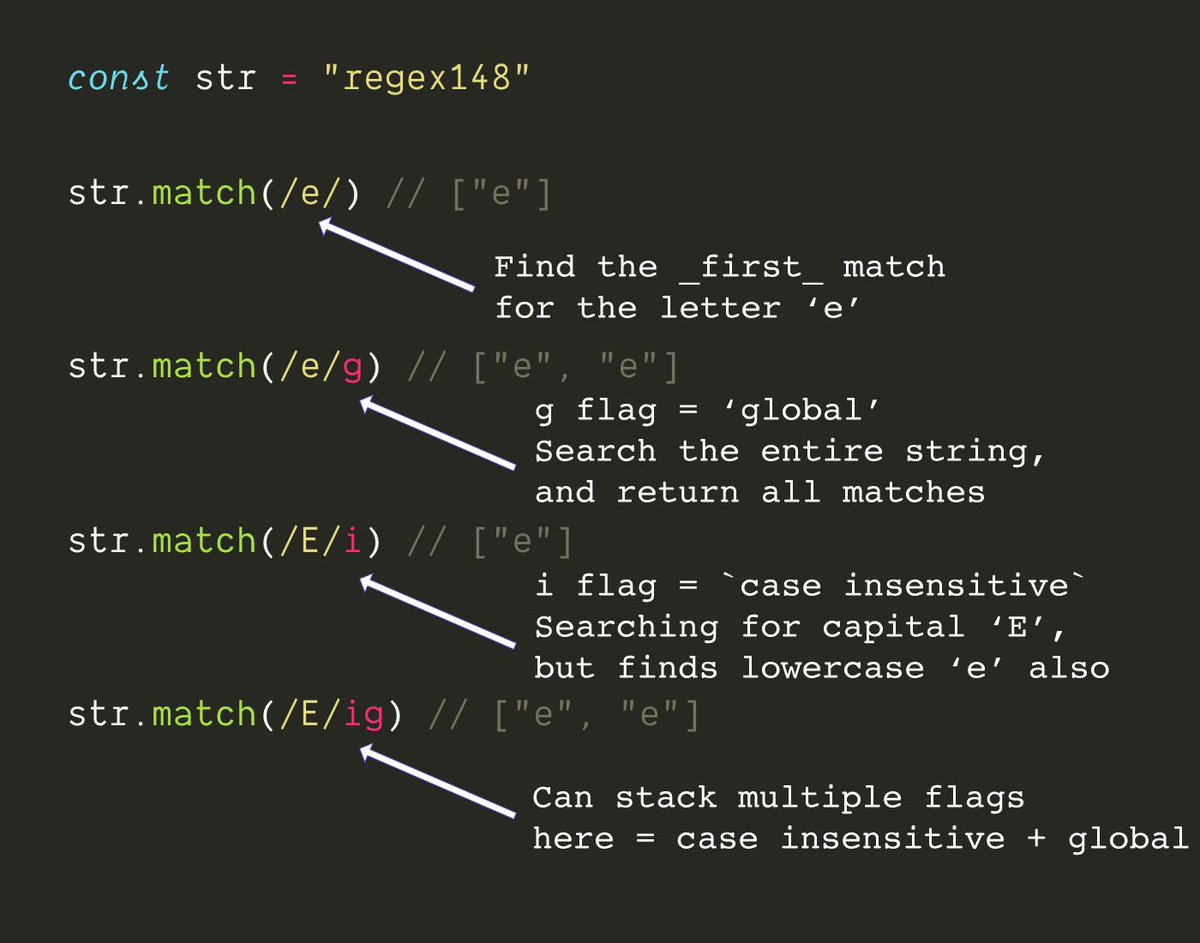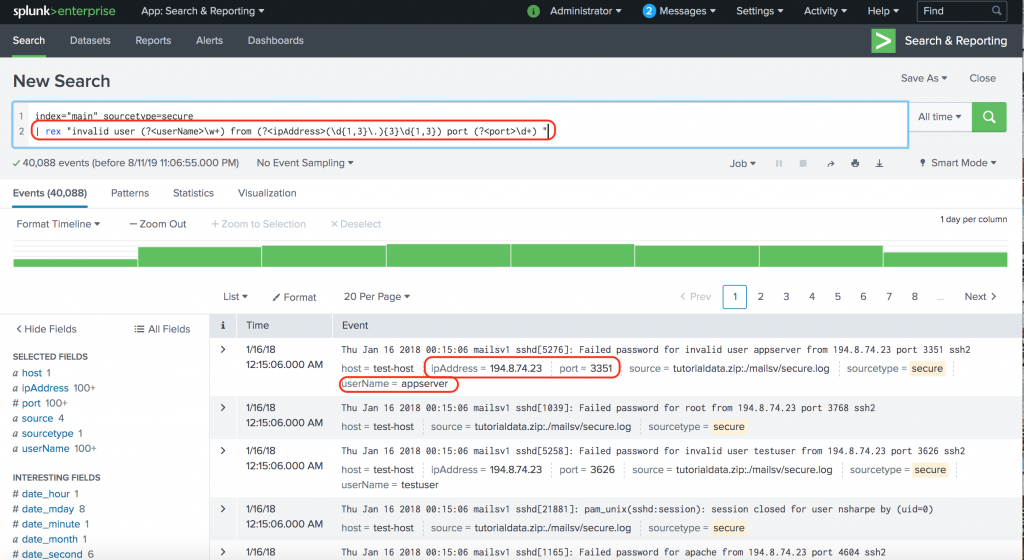

You can use a forward slash ( / ), instead of quotation marks, to enclose the expression that contains a character class. Unfortunately, it can be a daunting task to get this working correctly.
rex fieldclientip ' (So, let's say I have a raw value of Fred Smith: mykeyname myvalue'Fred Smith' That's fine, I've added the quotes. It also says to wrap values in quotes if they contain spaces. You can escape the backslash character by adding another backslash, as shown in this example: You can escape the backslash character by adding another backslash, as shown in this example. 12 Splunk best practices say to use key/value pairs. You can specify the expression in one of two ways. However, the expression uses the character class \d. You want to extract the IP class from the IP address. In this example, the clientip field contains IP addresses. Regular expressions with character classes | rex field=ccnumber mode=sed "s/(\\d/XXXX-XXXX-XXXX-/g" 2. The \d must be escaped in the expression using a back slash ( \ ) character. Description Use this command to either extract fields using regular expression named groups, or replace or substitute characters in a field using sed expressions. In this example the first 3 sets of numbers for a credit card are masked.
#SPLUNK REX ESCAPE SPECIAL CHARACTERS SERIES#
Use a to match the regex to a series of numbers and replace the numbers with an anonymized string to preserve privacy. To learn more about the rex command, see How the rex command works.
For a longer filepath, such as c:\\temp\example, you would specify c:\\\\temp\\example in your regular expression in the search string. You can escape the backslash character by adding another backslash, as shown in this example. You must escape both backslash characters in a filepath by specifying 4 consecutive backslashes for the root portion of the filepath. The filepath is interpreted as c:\temp, one of the backslashes is removed. Searches that include a regular expression that contains a double backslash, such as in a filepath like c:\\temp, the search interprets the first backslash as a regular expression escape character. The backslash cannot be used to escape the asterisk in search strings.

Splunk SPL uses the asterisk ( * ) as a wildcard character. If you want to match a period character, you must escape the period character by specifying \. The period character is used in a regular expression to match any character, except a line break character. The backslash character ( \ ) is used in regular expressions to "escape" special characters. This is interpreted by SPL as a search for the text "expression" OR "with pipe". For example, A or B is expressed as A | B.īecause pipe characters are used to separate commands in SPL, you must enclose a regular expression that uses the pipe character in quotation marks.


Here are a few things that you should know about using regular expressions in Splunk searches.Ī pipe character ( | ) is used in regular expressions to specify an OR condition. You can also use regular expressions with evaluation functions such as match and replace. You can use regular expressions with the rex and regex commands. Splunk Search Processing Language (SPL) regular expressions are PCRE (Perl Compatible Regular Expressions).


 0 kommentar(er)
0 kommentar(er)
